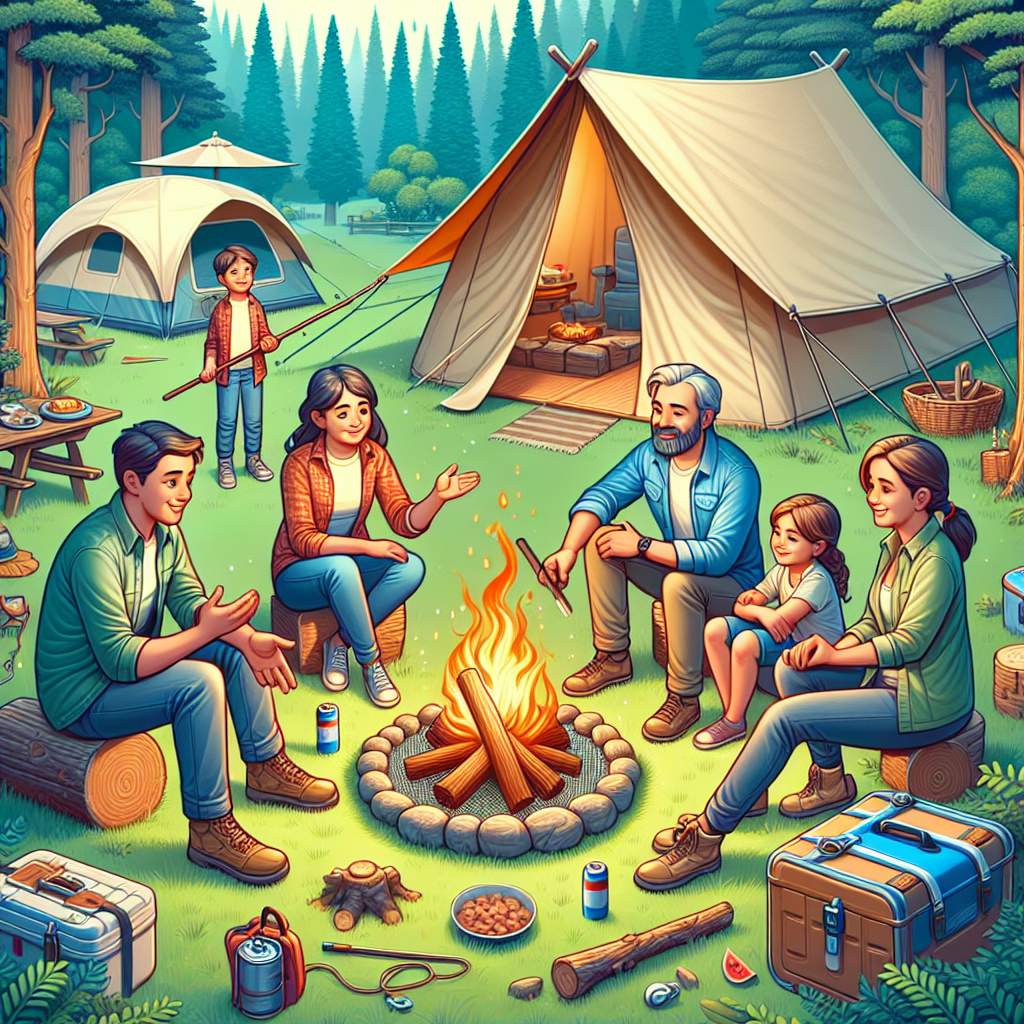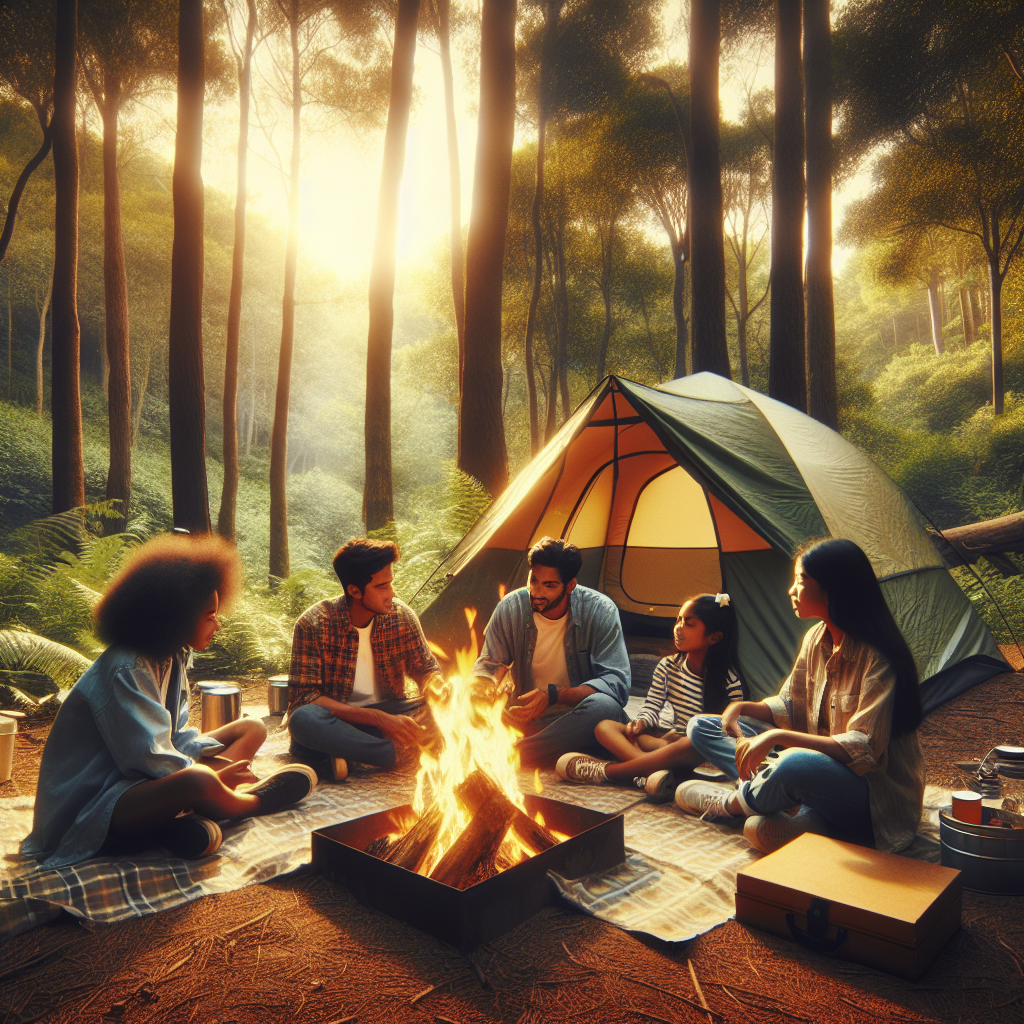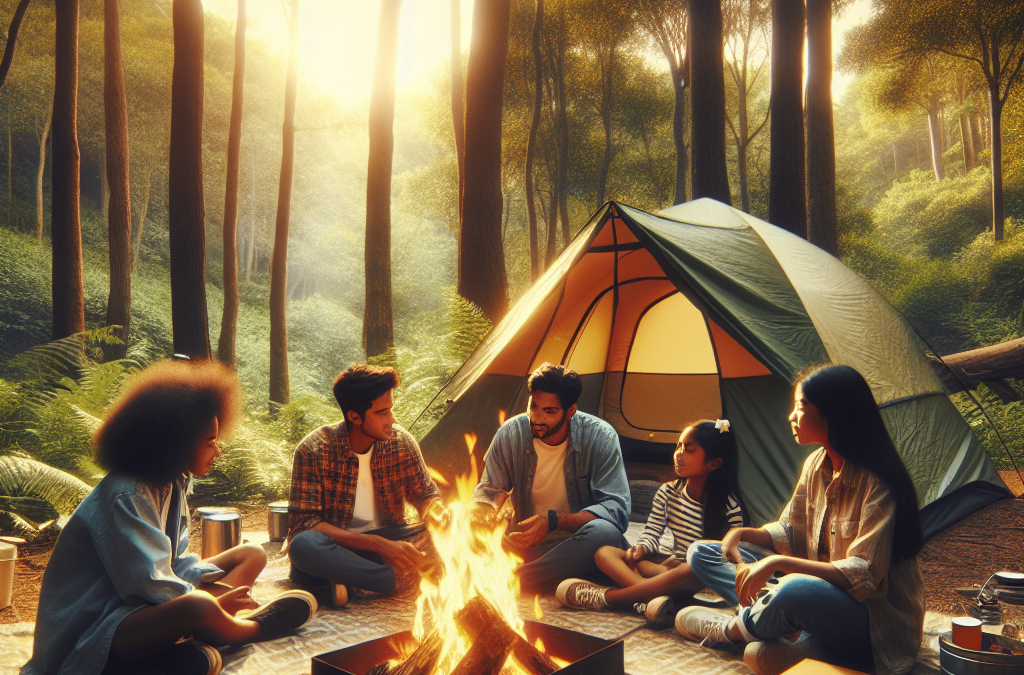If your heart yearns for the tranquillity of the great outdoors, you’re in the right place. “Family Camping: Making the Outdoors Fun for Everyone” is a treasure trove of tips and insights designed to transform your camping trip into an exhilarating adventure. With information touching on everything from selecting the perfect campsite to keeping the kids entertained, this guide offers you a blueprint to ensure every member of your family enjoys every moment under the stars. Buckle up for your journey into the enchanting world of family camping.
Choosing The Right Campground
Selecting the perfect campground for your family camping trip can be a rewarding experience. This is the first pivotal decision that you need to make right, as it sets the tone for the rest of your camping adventure.
Considering everyone’s interests
Each family member comes with their unique interests and hobbies. To ensure the camping trip is enjoyable for everyone, these interests should be a guiding factor while choosing a campground. If some members enjoy fishing, consider a campground near a lake or river. If hiking or mountain biking tickles your family’s fancy, a campground with trails would be ideal.
Evaluating facilities and amenities
While some families relish a real back-to-nature trip with basic amenities, others prefer a campground loaded with facilities like showers, flush toilets, and electricity. Consider what type of camping experience you are looking for and choose a campground accordingly.
Checking accessibility and safety
Safety should always be a priority. Ensure that the campground is safe and easily accessible. Additionally, check whether the campground is family-friendly, and if applicable, dog-friendly. If you are camping with small kids, a campground with a playground is a bonus.
Getting The Right Camping Gear
A camping trip can quickly turn from a fun experience to a worrisome situation if you don’t have the proper gear.
Choosing comfortable sleeping equipment
After a long day of activities, a good night’s sleep is vital. Select a sleeping bag that is suited for the lowest temperature you expect to encounter. Consider adding sleeping pads or air mattresses for comfort.
Selecting the appropriate camping tent
Your tent is your home during the camping trip. Comfort, size, and ease of setup should be your guiding principles while choosing a tent. Remember, a four-person tent means it can fit four people sleeping shoulder-to-shoulder, so if you want extra space, go for a larger tent.
Packing kitchen essentials for outdoor cooking
A camping stove, fuel, matches or lighters, pots, cutlery, and basic food items like salt, sugar, and oil are some must-haves. Also, pack a cooler to store perishables.
Preparing for different weather conditions
Pack clothing suitable for all possible weather scenarios. This may include rain gear, warm clothing, and sun protection.

Planning Nutritious and Fun Campsite Meals
Food is an integral part of any camping trip. Planning your meals in advance can make meals fun and stress-free.
Pre-Planning meals
Pre-plan each day’s meals and snacks before the trip. This way, you ensure you carry all the necessary ingredients.
Choosing easy-to-cook recipes
Simple and easy-to-cook recipes make camp cooking a breeze. Foil packet recipes or meals that can be prepared at home and heated at the campsite are great options.
Including everyone’s favorite food
To keep everyone happy, include at least one favorite meal for each person during the trip. This ensures everyone has something to look forward to.
Keeping meals healthy and balanced
The temptation to indulge in unhealthy foods can be high. However, ensure your meals are balanced and nutritious. Fresh fruits, nuts, and whole grains are excellent options.
Organizing Camping Activities That Everyone Will Enjoy
Activities during camping not only keep everyone engaged but also bring the family closer.
Fun camping games for kids and adults
From scavenger hunts to obstacle courses, camping games keep both kids and adults amused. Include games that require teamwork to foster bonding.
Evening activities around the campfire
Singing songs, telling stories, and even roasting marshmallows around the campfire make for magical camping evenings.
Exploring nature together
Nature walks, bird watching, and exploring the flora and fauna are not only pleasurable activities but also educational for kids.
Planning for downtime
Camping does not always have to be action-packed. Leisurely fishing on the riverbank, reading a book under a tree, or even taking a nap are wonderful activities.

Teaching Kids About Camping Ethics and Responsibility
Instilling a sense of responsibility and respect for nature in children can be an invaluable aspect of a camping trip.
Respecting wildlife
Teach kids not to disturb wildlife. Bothering animals or picking plants should be discouraged.
Maintaining cleanliness and observing garbage disposals
Teach children the importance of cleanliness. Everyone should carry a garbage bag and ensure their camping area is clean.
Leaving no trace principles
Growing an understanding of “leave no trace” principles is fundamental. Essentially, you should leave the campground exactly how you found it, if not better.
Sharing responsibilities around the camp
Assigning simple responsibilities such as collecting firewood or cleaning dishes can teach kids about teamwork and responsibility.
Making The Campsite Comfortable
A comfortable campsite equals a more enjoyable camping trip.
Arranging sleeping quarters for comfort and warmth
Properly set up your tent. A solid tent with comfortable sleeping arrangements can make a difference in your camping experience.
Creating a functional camp kitchen
A well-organized camp kitchen not only makes cooking easier but also keeps animals from being attracted to your site.
Setting up common areas for relaxation and meals
A designated area for common activities such as eating, playing games, or just relaxing can make the campsite feel homelier.
Prioritizing Safety During The Camping Trip
Ensuring safety during camping is crucial.
Educating family members about wildlife safety
Understanding how to react when encountering wildlife can prevent unwanted situations.
Camping gear safety procedures
Understanding how to use different camping gear properly helps in avoiding accidents and injuries.
First aid and emergency preparation
Carrying a first aid kit and knowing how to use it is important. Also, arm yourself with basic knowledge of how to handle common camping mishaps.
Documenting The Family Camping Adventure
Keeping a record of your camping trip can be a fun way to remember the good times.
Taking photos and videos
Capture the precious moments through photos or videos. They are great conversation pieces and can be a source of nostalgia in the future.
Keeping a camping journal
Encourage everyone to jot down their experiences and observations. This could be a fun and reflective family activity at the end of the day.
Making a souvenir or art from nature finds
Collecting unique rocks, leaves, or shells can be transformed into beautiful souvenirs or pieces of art. It can also be an engaging activity for the kids.
Making Camping A Learning Experience
Turning your camping trip into an educational journey enriches the experience.
Identifying plants, animals and constellations
Cast your explorer spirit to identifying different plant species, animals, or even constellations. This not only fosters curiosity and learning but can also be a lot of fun.
Learning basic survival skills
Camping is the perfect time to teach and learn survival skills such as building a fire, pitching a tent, or reading a compass.
Exploring the geographical features of the camping area
Observing and learning more about the natural geographical features of your campsite such as the type of soil, the surrounding vegetation, or the basic topography can be quite a fascinating learning experience.
Dealing With Unforeseen Camping Challenges
No camping trip goes without a hiccup or two. Dealing with these hitches in a positive way adds to the camping experience.
Prepping for sudden weather changes
Prepare yourselves for unexpected weather changes. Keep a weather app handy for alerts and always have gear for different weather conditions.
Ensuring food and water safety
Pack enough fresh water or carry water purifiers. Wrap your food properly to prevent it from spoiling or attracting animals.
Handling camping gear failures
A small repair kit can come in handy in case of any gear failures. Also, know how to improvise in case of malfunctioning equipment.
Solving problems with a positive attitude
Most importantly, approach all challenges with a positive attitude. They are a part of the adventure! Remember, the goal is to enjoy the experience, so keep the spirit of fun and family alive, and your camping trip will indeed be unforgettable.

